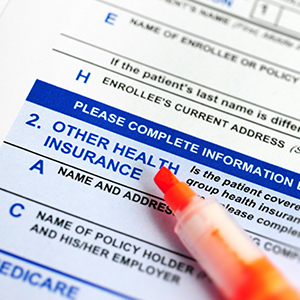- Do I Need Heroin Rehab? Is There Heroin Treatment?
- What to Expect from Heroin Rehab?
- How Long Does Rehab Take?
- Types of Heroin Rehabs
- Paying for Heroin Rehab
- What Happens after Heroin Rehab?
- How to Pick a Top Heroin Rehab?
What is Heroin? Is Heroin Addictive?
Heroin addiction is best conceptualized as a chronic, relapsing disorder. By the time the decision to quit is made, a multitude of complications may have already set in.
These entail physical, psychological, familial, social, occupational, financial and at times even legal domains. Consequently, the management of heroin addiction is challenging, as it not only involves staying away from heroin but also addressing the various complications that follow its use.
Do I Need Heroin Rehab? Is There Heroin Treatment?
Research has shown that standalone detoxification for heroin addiction is associated with a high risk of relapse as it fails to address various important issues involved in management of heroin addiction.
 Don't let heroin addiction steal another day. Search for treatment centers today.
Don't let heroin addiction steal another day. Search for treatment centers today.
Indicators of the need for rehab include:
Therapists are Standing By to Treat Your Depression, Anxiety or Other Mental Health Needs
Explore Your Options Today
Ad
- Prior unsuccessful attempts at outpatient care for heroin addiction.
- Low level of motivation.
- Co-occurring physical or mental illness.
- Major depressive disorder is highly prevalent amongst heroin users with comorbid alcohol and/or cocaine dependence.
- Depression was also associated with poor treatment outcomes, specifically in the initiation of drug use after treatment in a cohort of heroin dependent patients with alcohol and/or cocaine dependence.
- Heroin dependence also increases the risk for poor overall health and a higher likelihood of problems like hepatitis, tuberculosis, lower liver function and anxiety.
- Poor psychosocial support.
- Disruptive home environment, risk of violence (directed towards self of others) associated with heroin use.
- Abuse of multiple substances.
What to Expect from Heroin Rehab?
Quality heroin rehab programs will have a well laid down set and sequence of treatment approaches and procedures.
Intake
Following admission to a heroin rehab program one will sign the formal release papers for treatment. Subsequently, one undergoes the intake procedures that involve a thorough physical and psychological assessment.
Detox
The initial few days of rehab are focused on detoxification from heroin whereby the person is withdrawn from heroin under medical supervision. This includes the potential use of medicines to help manage withdrawal symptoms.
- Opioid agonists or partial agonists such as methadone and buprenorphine can be used to take care of the craving and withdrawals from heroin during detoxification.
- Symptomatic care using clonidine, NSAIDS and benzodiazepines is offered at times to address the withdrawal features.
- Use of medications for the long term after the phase of detoxification has been found to increase the retention in treatment program, reduce heroin use and decreased occurrence of criminal activities.
- Buprenorphine, buprenorphine-naloxone (Suboxone) and methadone can be used as long term maintenance or substitution therapy for heroin.
- Naltrexone is an opioid antagonist and is suitable for use for those who want to remain completely opioid free.
Adjunct Therapy
Individual and group counseling and behavior therapies can be offered as important adjunct to medicines.
- Motivational interviewing helps address the barriers to motivation to change.
- Cognitive behavioral therapy helps recognize, avoid, and cope with the situations in which one is likely to abuse heroin.
- Different heroin rehab programs have different policies with regards to the extent of involvement of family in the rehab process. While some try to keep the contact with family members to the minimum, others see family as an active participant in the rehab process. Others have fixed visiting hours when the family members can schedule their visit.
- In a systematic review of the effectiveness of psychosocial treatments for opioid dependence, researchers found that adding psychosocial treatments to pharmacological detoxification programs lead to higher treatment compliance and completion, and also improved the abstinence rates from heroin in methadone maintained patients.

Contrary to widespread apprehensions regarding the outcome of treatment of heroin addiction, the research has demonstrated treatment to be effective. Those who are enrolled in a treatment program tend to do significantly better on different variables including heroin and other drug use, psychological health, high risk injecting behavior and criminality.[3][4]
However, treatment retention is one of the major predictors of outcome and high attrition rate remains a challenge. Standalone detoxification is commonly associated with a poorer outcome with high relapse rates of up to 70% at the end of 6 months.[5]
The following groups are at increased risk of treatment dropout:
- Young people.
- Concurrent users of other drugs or alcohol.
- Those with poor support from family.
- Those with anxiety sensitivity.
This highlights the importance of continuum of care for heroin addiction whereby the short-term detoxification is seamlessly integrated into the long-term phase of management.
One can expect the heroin rehab environment to be supportive and educational, where:
- A person's physical symptoms can be stabilized.
- Psychological issues can be dealt with.
- They can learn coping skills to deal with compulsive thoughts about using.
For help finding the right heroin rehab for yourself or a loved one, please call
1-888-993-3112Who Answers? today.
How Long Does Rehab Take?
Heroin addiction affects each individual differently. Factors that shape the course of the rehab process and determine the time needed in rehab include:
- Duration of use.
- Amount of use.
- Purity of the drug.
- Nature and extent of complications due to heroin use.
- Extent of psychosocial support.
- Personality.
Depending on the individual requirement, the duration of heroin rehab tends to vary. One can expect duration of rehab to range from 30 days to 90 days.
However, due to the significant medical complications that can occur during withdrawal and rehab, a 90-day stay is highly recommended to ensure long-term success.
Types of Heroin Rehabs
Based on the nature and extent of services offered, one can expect different types of heroin rehabs.

Residential Heroin Rehabs. Residential heroin rehabs offer round the clock stay facilities where one remains for the entire duration of the program. The very nature of heroin addiction puts enormous strain on one's body and psyche during attempts to quit its use. Residential heroin rehabs offer closer and more direct supervision, longer periods of contact with the treatment team, and restrictions on access to heroin and other drugs.

Private or Luxury Rehabs. Both private and luxury rehabs offer
top-notch amenities in conjunction with the
treatment services. These can range from housekeeping services such as fine linens to gym facilities; massage therapy, swimming pool, and other recreational facilities. These facilities help make the stay comfortable while one undergoes the treatment for heroin addiction.

Executive Rehabs. Executive rehabs offer an option to undergo the heroin addiction treatment without the requirement to be completely away from the professional demands and responsibilities. These rehabs offer access to phone and computer, and even allow meetings with clients. Hence, one can continue to execute one's vocational responsibilities while attending rehab.

Other Specialized Rehab Programs. Depending on one's specific needs one can search for specialized rehab programs. These include programs that are Gender-Restricted, Holistic, Age-Specific, Substance-Restricted, Dual-Diagnosis/Co-occurring disorder specific.
These rehab programs address the issues that are specific to the respective groups while delivering the rehab services.
- Gender restricted programs may work well for people who have a history of sexual abuse, or who would generally feel more comfortable in a single-sex surrounding.
- Similarly, dual-diagnosis programs are more likely to be effective in heroin users with comorbid psychiatric issues.
Mortality amongst heroin users is particularly high for those suffering from other mental or physical problems like HIV. Treatment can protect you or your loved one from succumbing to the perils of addiction. Please call
1-888-993-3112Who Answers? for help in finding an appropriate heroin addiction treatment program near you.
Paying for Heroin Rehab
Arranging the required finances is an important aspect of heroin rehab. There are multiple options to explore--beyond utilizing one's own savings--for those who have taken the important decision to seek rehab for heroin addiction.
- One can expect support from family and friends in form of private loans.
- Accessing public loans or seeking services of publicly funded rehabs is another option.
- Look into the option of Employee Assistance Programs (EAP), if offered by your employer.
- Finally, one may want to consider liquidating one's assets if other options of securing finances get exhausted. Obtaining quality treatment should be made a priority.
Does Insurance cover Heroin Rehab?
According to the Affordable Care Act (2010), insurance companies are required to provide policies with mental health and substance abuse coverage.
- However, one must check with the insurance services provider if the rehab services are covered by your insurance and what the 'small print' rules are in this regard.
- Check the pre-requisites before utilizing rehab services. For example:
- Does one need to try outpatient treatment first before rehab services are covered under insurance?
- How many days are covered?
- What is the copayment structure?
What Happens after Heroin Rehab?
Heroin rehab is an essential initial step in the overall management of heroin addiction. However, most will require an extended treatment that continues beyond rehab. Heroin rehab should be integrated seamlessly into the long-term phase of management.
 Groups like Narcotics Anonymous are fantastic resources for those maintaining sobriety after rehab. Find a meeting today.
Groups like Narcotics Anonymous are fantastic resources for those maintaining sobriety after rehab. Find a meeting today.
The long-term strategies beyond rehab include:
- Therapeutic communities:
- Therapeutic community is a drug free residential setting where the residents pass through different stages of roles and responsibilities commensurate with their levels of personal and social responsibilities while living together in a structured and organized way.
- The residents play a multitude of roles including that of a client, role model, counselor, supervisor, and tutor.
- Recent reports have supported effectiveness of therapeutic community with regards to drug use, psychological, employment and legal outcomes.
- Contingency Management:
- Contingency management makes use of principles of behavioral therapy and helps support heroin free life by making tangible rewards contingent on drug free lifestyle and behaviors.
- Relapse prevention.
- Relapse prevention helps reduce the risk of relapse to heroin use by identifying the risk factors and the ways to address these risk factors.
Also, one can explore the option of 12-Step program of Narcotics Anonymous.
How to Pick a Top Heroin Rehab?
It is important that one makes a well-informed choice on the heroin rehab program. You can ask about the following:
- The philosophy of the rehab towards addiction.
- The management protocols being followed at the center.
- Duration of the stay.
- The experience of the treatment team.
- Effectiveness of interventions being offered.
- Nutritional support.
- Success rates.
- Provisions for aftercare and relapse prevention.
- The cost of treatment.
- Provisions of insurance are the other important factors that require consideration while making the choice.
As advocates of mental health and wellness, we take great pride in educating our readers on the various online therapy providers available. MentalHelp has partnered with several thought leaders in the mental health and wellness space, so we can help you make informed decisions on your wellness journey. MentalHelp may receive marketing compensation from these companies should you choose to use their services.
MentalHelp may receive marketing compensation from the above-listed companies should you choose to use their services.
Ad






